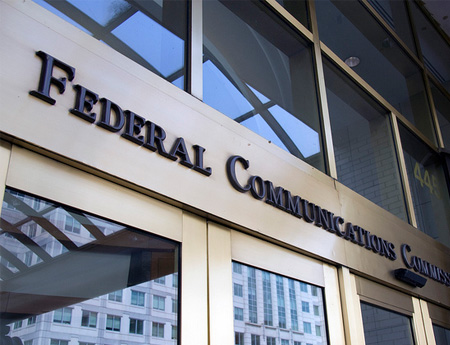Religious Broadcasters Have TV Ratings Issues

The smarter way to stay on top of broadcasting and cable industry. Sign up below
You are now subscribed
Your newsletter sign-up was successful
There is a bit of a schism in the video distribution industry over TV content ratings.
The FCC is currently conducting a congressionally mandated review into the effectiveness and accuracy of the guidelines (assigning a rating to shows from TV-Y to TV-MA), which various groups have criticized.
The National Association of Broadcasters, NCTA-The Internet & Television Association, and the Motion Picture Association of America are all on the same page, which is that the ratings are useful and reliable and the criticism misplaced. "The record ultimately illustrates that, while some may disagree with certain ratings or seek to go beyond the narrow focus of this proceeding, the overarching system continues to serve parents and respond to public concerns," NAB et al. told the FCC in its reply comments this week.
But the National Religious Broadcasters finds that too easy an answer, as it pointed out in its comments.
"The record in this proceeding appears to reveal a disconnect between major industry leaders who produce and distribute content and parental voices who wish to navigate content offerings as truly informed consumers."
Related: FCC Seeks Comments on Ratings System
While NRB joins NAB et al. in its sensitivity to First Amendment concerns about the government getting into the TV content ratings business, and is also wary of "regulations that end up offering much more burden than real benefit. Such has happened in other cases, including the current well-intentioned, but ultimately counter-productive 'Kid-Vid' reporting regime." The FCC is reviewing that reporting regime as well.
The smarter way to stay on top of broadcasting and cable industry. Sign up below
NRB also told the FCC this week that concerns expressed by the Parents Television Council, Focus on the Family, Concerned Women for America and others should not be ignored.
Related: Parents Television Council: FCC Needs to Reset Kids TV Rule Review
For example, NRB cited a PTC filing detailing increasing violent, sexual and "profane" programming, "hazardous" content that "appears to be rated incorrectly, inconsistently, and in a manner that seems to concerned parties to lack transparency and accountability."
NRB also says it fears that could be a lowering tied that sinks all boats. "If parents and families, perhaps disgusted by lowered decency standards or feeling betrayed by inaccurate parental guidelines, abandon television broadcasting as a reliable source of family-friendly information and entertainment, then our member stations may suffer."
Related: Sen. Lankford: FCC Should Ponder Show-Appropriate Ad Requirement
Ultimately, NRB navigates something of a middle course, putting in a plug for kinder, gentler programming, though NAB et al. says the result of such an FCC inquiry should not be to alter content. "While there may be programming that PTC and other groups disfavor, audiences have more video choices than ever before," they told the FCC this week as well. "The rating system is not—and should not be—designed to influence the content of programming."
The FCC is required to report back to Congress on its findings by mid-May.
The specific instruction from Congress -- in a provision of the appropriations bill that ended the government shutdown -- was: "The FCC is directed to report to the Committees on Appropriations of the House and Senate within 90 days of enactment of this Act [Feb. 15] on the extent to which the rating system matches the video content that is being shown and the ability of the TV Parental Guidelines Oversight Monitoring Board to address public concerns."
Contributing editor John Eggerton has been an editor and/or writer on media regulation, legislation and policy for over four decades, including covering the FCC, FTC, Congress, the major media trade associations, and the federal courts. In addition to Multichannel News and Broadcasting + Cable, his work has appeared in Radio World, TV Technology, TV Fax, This Week in Consumer Electronics, Variety and the Encyclopedia Britannica.

